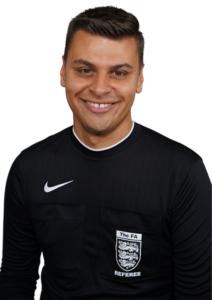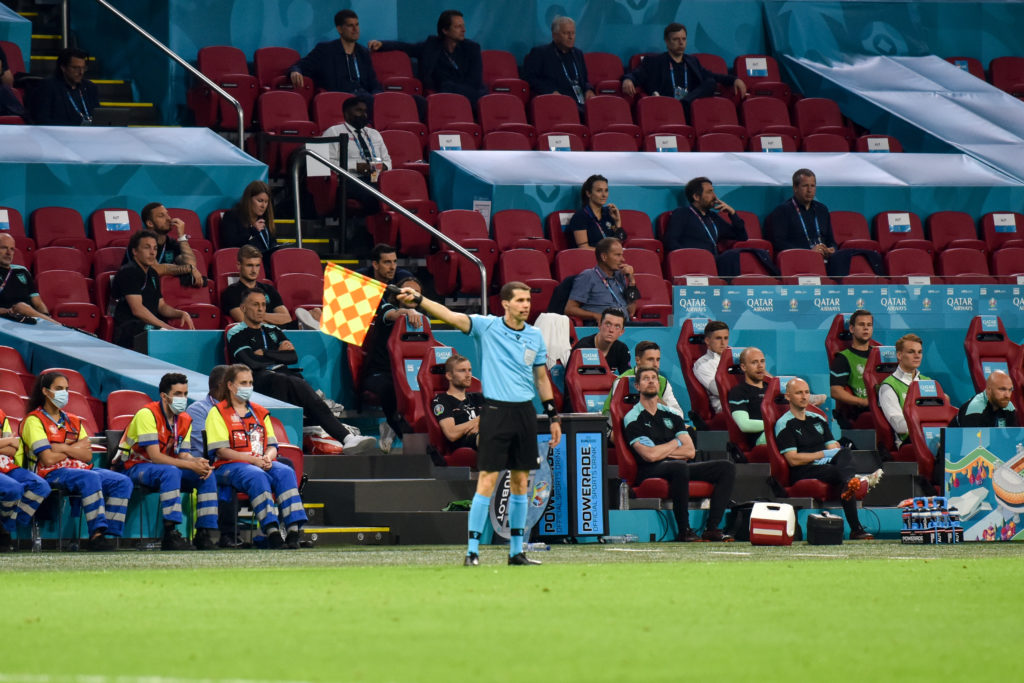There are so many fantastic referees at all levels of the game and, in my role as Managing Director of The Third Team, I have been lucky enough to speak in front of and work directly with many them from all across the world. Referee managers and coaches have trusted me to work with their officials. I believe that many of these referee managers & coaches will support my decision to write about a topic that finally needs to be directly addressed!
First and foremost, officials are human beings and a great many of them are actually children! Whether they are 14 or 52 years old, they are living, breathing, impressionable and they have feelings. We seem to recognise this in the classroom or workplace when we call them “students” and “co-workers”. The best teachers and senior leaders in industry set their agendas with patience, support and encourage them with constructive feedback and praise, and create a safe development environment where they are allowed to make mistakes and fail, because it is widely accepted that this is how you learn. You learn the most from making mistakes and failures.
So, what happens when at the end of the working day and the “students” and “co-workers” are now called a referee? Unfortunately, every week I hear stories of what my clients are experiencing in their fixtures. They are yelled at and called disgusting names by players, club officials and spectators (some of whom are parents of children who are playing) for making mistakes and perceived as failing, using language that, if used in any workplace, would result in the sack. They are demeaned and humiliated by players, club officials and spectators in front of all in attendance, another sanctionable behaviour were it to take place in a professional environment. These players and club officials “lead” by using intense fear and intimidation, creating an unsafe environment that sabotages the the development of match officials, kills match control and creates performance problems, again behaviours that would be a case of gross misconduct in any school or office in the land! As a player or club official you are a role model/leader playing a game refereed by a human being who deserves to be respected and treated with dignity.
I will often hear that this conduct is only from one or two clubs. Along with this, I will frequently hear that these targeted officials are simply “too sensitive,” not tough enough and/or are really the problem in the game. So, by that reckoning, if a player or club official only targeted one or two referees to swear at and humiliate, then this would be OK, especially if the targeted officials were “too sensitive?” It’s my understanding that in football leagues, there is a zero tolerance policy for referee abuse.
In all of my years of experience working with thousands of officials I know the following to be true: Bullying, demeaning and humiliating referees does not create mental toughness or peak performance in them. Rather, it makes officials anxious and physically tight, distracts them from the important task of controlling the fixture, kills their motivation and enjoyment of the refereeing, shuts down the learning process and generates performance problems like apprehension, slumps and mental blocks! This kind of behaviour from players or club officials never gets the best out of the officials.
I know that when referee abuse does happen, it makes administrators and some referee managers/coaches uncomfortable.
If you speak to officials of any level or league in the world, aged 14 to 52, you will hear these unpleasant stories. Referees know the difference between good and bad conduct because they’ve either observed it or experienced it directly. However, as adults, in particular: players, club officials and spectators, we need to stand up and protect officials, especially referees under the age of 18, from abuse and call it what it is! Until we do, a negative culture will continue to focus on winning at all costs, at the terrible expense of abusing referees, particularly those who are children.
At The Third Team I work individually and in collaboration with different professionals where I have developed workshops and 1-2-1 sessions associated with Resilience and Mental Toughness Development to help referees. The workshops and 1-2-1 sessions are interactive, where referees are encouraged to open up and share their experiences to help themselves and each other.
Feel free to contact me if you’d like to know more about my workshops or 1-2-1 sessions and how I could help you or your officials.
Best Wishes,

Nathan Sherratt
Referee Educator & Managing Director of The Third Team

Nathan Sherratt
Nathan Sherratt, Referee Educator, Resilience Trainer and Managing Director of The Third Team. A Mental Toughness Practitioner based in County Durham, North East England.

